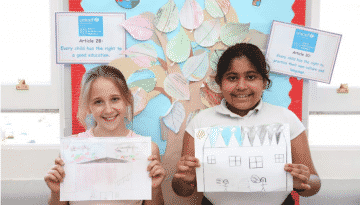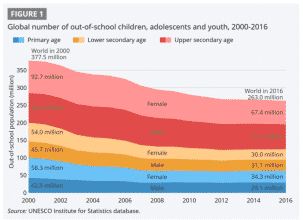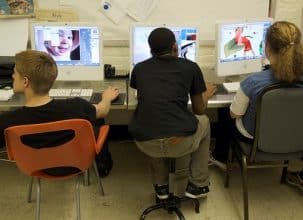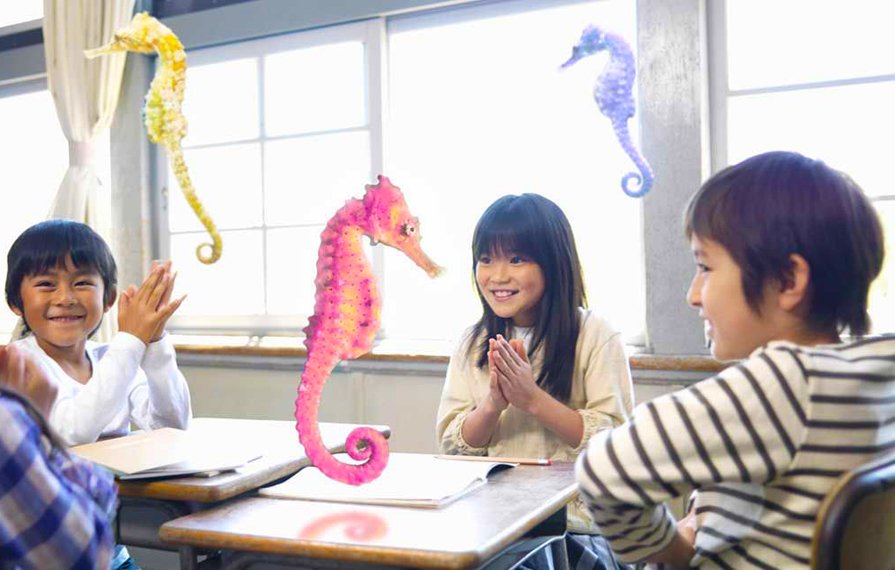
Where education and innovation merge – The possibilities and networks
There are some very important networks across the globe which are interested in education. The trick until now has been to jump on bandwagons in order to be funded. From sexual health in the 70s to the United Nations Agenda 21, and the sustainable development goals nowadays. Policy means funding. And funding means survival in a very competitive environment.
In Qatar in 2013 I had the honour to meet HH Sheikha Moza Bint e Nasser, mother of the current Emir. Through her Wise-Qatar.org project she regularly gathers experts from all over the world to Doha to discuss education innovation. Corporates, Academics, Media and Policy makers are all invited to this event which is a kind of Davos for learning. Her Highness has personally and very publicly pledged to reduce the number of children out of education by 1 million every year and her WISE awards celebrate success across the entire edutech sector. The initiative has been historically supported by former United Kingdom Prime Minister, Gordon Brown, United Nations Director General António Guterres and many other high profile opinion formers.
Worst case scenarios of education does not change. Implications for morals and ethics
“If we do not revolutionise education then as a race we will likely perish.” Noam Chomsky
As noted by the philosopher Noam Chomsky at MIT, the dissonance between technology and our morals means that for the first time in history self-annihilation is possible for the human race. If we get education wrong now, then within ten years there will be major geopolitical forces unleashed in the world. Without a moral compass or ethical horizon things could go horribly wrong. Perhaps, they already are… “In Learning Re-Imagined” (Brown- Martin, Bloomsbury Qatar Foundation, 2014) , Chomsky states during an interview…
“As far as the technology itself and education are concerned, technology is basically neutral. It’s like a hammer. The hammer doesn’t care whether you use it to build a house or to torture someone, using to crush somebody’s skull. The hammer can do either”
These days, extremes in politics and populism seem to be mirrored by the environment and climate change. Meanwhile, the general public know more than ever about all of these big issues but ‘slacktivism’ (sofa activists) and a lack of empathy generally means that the general public are generally apathetic. However, the huge marketing campaign from the United Nations around the Sustainable Development Goals has led to heightened awareness by the general public and the actions of individuals Greta Thunberg and groups like Extinction Rebellion in the UK have led to peaceful civic protest all over the world. The role of social media has been especially important in motivating young people to participate. Since Autumn 2018 school strikes have taken place in 100 countries all over the world.
Unfortunately, there is a huge imbalance in terms of digital inclusion and exclusion in the world today. Ironically, it will only take a small percentage of the 260 million children and youth in the world currently outside of formal school to gain access, for the 4th Industrial Revolution in education to materialise.
There needs to be a sea-change in mindset towards social issues: These children and future adults are not a problem but a huge untapped resource. In terms of sustainability and the future of the planet they should have the biggest say. And if Asia is the current frontline of the industrial revolution then Africa will surely very quickly be the next.
The World Economic Forum (WEF) also suggests a negative scenario if education is not invested in:
“If national and global actors, including multinationals as well as the education sector and policy-makers, fail to support workers attaining and upgrading skills, the outcome could be a true “lose-lose” scenario – rapid technological change accompanied by talent shortages, mass unemployment and growing inequality. Yet that’s a plausible outcome, particularly given the existing shortfall of skills essential for a tech-driven future reported by enterprises around the world.”

What will happen if education 4.0 becomes a thing? The upside
Recently, in March 2019 the World Bank (WB) and the International Monetary Fund (IMF) launched an educational blockchain token. It involves the gamification of education, training and upskilling. The World Bank also issued a Bond in August 2018 so Distributed Ledger Technology appears to have a permanent place on the WB roadmap.
Blockchain is also being widely used in education to validate certificates and publishing. It also helps with rights management as in many other creative industry sectors. And of course it can automate the development of scientific research by reading and checking texts then producing a summary It can also help with performance records and even tackling bullying. A new dimension cyber security no less!
Meanwhile, a group of ex Deloitte analysts have decided to support a blockchain lab for Duke University. They seem to be mid funding but public private partnerships powered by emerging technologies could be an interesting new model.
IBM, as veterans of all emerging technology have a very strong presence in the top US universities. St Louis is just the latest in a series of IBM academies which include Columbia, MIT, NYU and Harvard.
As testament to the fact that the market is maturing, Chris Larsen, co-founder of Ripple, the crypto payment protocol, and his wife Lam made the biggest ever donation to a US university in March 2019. Yes, there are tax advantages and huge PR in donating 25m usd to San Francisco university of course but it still represents big patronage and a megatrend with many others such as IOHK and Cardano keen to be seen to be giving back to the ecosystem. Indeed in 2018 Ripple itself donated 25m usd to public schools in the US.
Apart from blockchain, the main discussion with the other driver of 4IR technology, AI seems to be in relation to personalising education and helping teachers cope with different ability levels in the same class. It means that there is more attention for the individual and less chance of ‘left behind’ children.
This tailor made education approach is on the horizon globally and starts from primary school age. Personalised learning should be considered as a meta tool for teachers not a replacement for them. It is a role change that is all. But of course teacher training also needs to be revolutionised.
Lately, there has been alarm from the populist media about the adoption of 4IR technology. Ethical and moral issues related to elitism and social conditioning by commercial companies do need to be urgently explored: The Centre for Data Ethics and Innovation (CDEI) in the UK is just one example of action in this regard and, once these issues are addressed, technology will, as in previous revolutions, prove to have many more pros than cons.
Enhanced learning experiences are already being rolled out globally across all the continents. Many of them are mentioned in the “Learning Re-Imagined” book by education expert Graham Brown-Martin. The book was commissioned by WISE and published in limited edition by Bloomsbury in 2014. Copies of the book can reach $400 USD on Amazon.
The UN and other institutions are also and rightly concerned about ethical issues related to technology and education. Dealing with young minds is sensitive stuff and the process should not be rushed and it will take a generation to see the impact of measures that we begin to implement today. Irrespective of the format it will be crucial to give tools and vocational skills to the next generation. For example the use of internship programmes in Germany has boosted the workforce and reduced unemployment to half that of the EU average.
Above all perhaps, Education 4.0 needs to be about lifelong learning. Skills and vocational focus are important but the existing workforce also needs to be upskilled and incentives must be in place for that to happen.

Technology may lead to Increased efficiency in learning experience but for that to happen 4IR global standards are required.
Despite the doom mongering, there will always be a human element in education. Technology is simply the facilitator of change not the controller of the classroom. That will always be the role of the teacher. The notion of favourite teacher will be as important for future generations as it has been in the past. It is highly unlikely that people will point to their favourite technology programme as inspiration for entering a particular career path!
But no progress in education will be possible without the active participation of parents. The State Education Agencies network in the USA represents an effective opportunity to personalise education and empower parents. The Home Education movement in the UK is another innovative example.
Lastly, the official declaration of the United Nations 2030 agenda includes education as a priority. Technology will play a role if their/ our goals are to be reached. “In these Goals and targets, we are setting out a supremely ambitious and transformational vision. We envisage a world free of poverty, hunger, disease and want, where all life can thrive. We envisage a world free of fear and violence. A world with universal literacy. A world with equitable and universal access to quality education at all levels, to health care and social protection, where physical, mental and social well-being are assured.”
And Microsoft founder, Bill Gates is right when he states that: “We have not even begun to do that work of understanding motivation and engagement and teaching styles that would really improve the output of the system — better learning, less dropouts.”
Part 3 will be posted tomorrow

He was also the founder ceo of the Creative Industries Portugal cluster for the Ministry of Economy and Regional Development agency for the North of Portugal.
In addition Michael is a mentor of Crypto Valley Labs, Switzerland, MIT Portugal, Start Up Lisboa, The Lisbon Challenge and a founder jury member of the European Commission @Diversity Culture Technology competition.
In the past Michael has worked on projects with many major brands and institutions including PlayStation, Nike, X Box, MTV, Diageo, Cockspur Rum, Interbrew, BMW, Coca Cola, SONAR, Red Bull, Nokia, Vice and the ICA. He also has a significant media track record having worked for City Limits, Tank Girl, Deadline, Observer Life magazine, Art & Architecture Journal and Labkultur.TV.


























